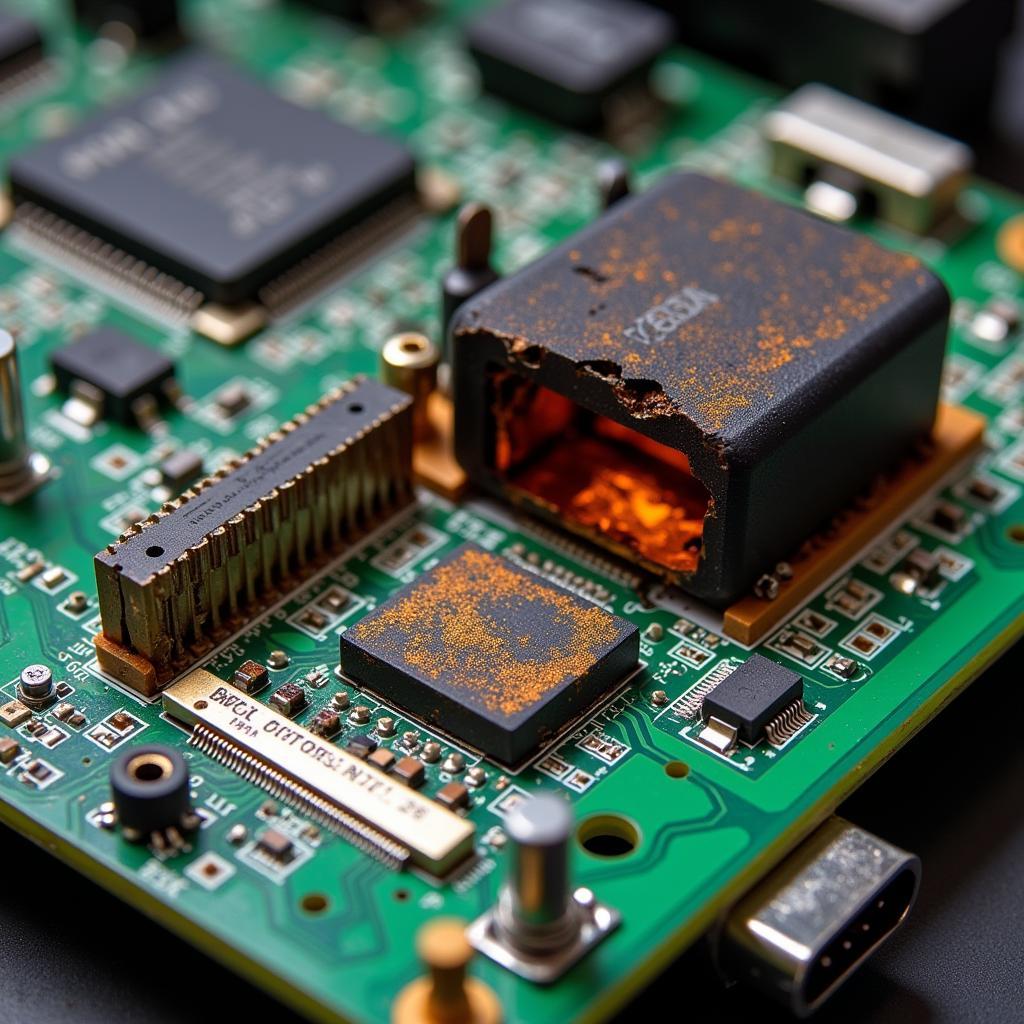Modern vehicles rely heavily on sophisticated electronic systems for optimal performance. At the heart of these systems lies the Engine Control Unit (ECU), often referred to as the “brain” of your car. The ECU manages a complex array of functions, from fuel injection and ignition timing to emissions control and transmission shifting. Given its critical role, it’s only natural to wonder about the potential risks associated with diagnostic procedures, specifically whether using the wrong diagnostic equipment can damage this vital component.
The Importance of Compatible Diagnostic Equipment
The answer to the question “Can using the wrong diagnostic equipment damage a car ECU?” is a resounding yes, although the likelihood of severe damage might be relatively low thanks to built-in safety mechanisms in most modern vehicles. However, the possibility of causing some level of harm is very real.
Imagine attempting to communicate with someone speaking a different language. The chances of misunderstanding and misinterpretation are high. Similarly, using incompatible diagnostic equipment is like trying to converse with your car’s ECU in a language it doesn’t understand. This can lead to miscommunication, potentially disrupting the ECU’s programming or even corrupting its software.
Different makes and models often require specific diagnostic tools designed to communicate effectively with their unique ECUs. Using a generic or incompatible scanner can result in a mismatch of communication protocols, voltage discrepancies, or even short circuits, all of which can potentially harm the ECU.
Common Risks of Using Incorrect Diagnostic Equipment
While a single instance of using the wrong equipment might not always lead to catastrophic failure, repeated use or using severely incompatible tools can increase the risk of the following:
- Data Corruption: The ECU relies on precise data for accurate performance. Introducing incorrect data or commands can corrupt existing settings, leading to performance issues, error codes, and even component malfunction.
- Software Malfunctions: In severe cases, incompatible equipment can disrupt the ECU’s software, causing it to malfunction or even become unresponsive.
- Electrical Damage: Voltage incompatibility or short circuits caused by incorrect connections can damage the ECU’s delicate circuitry, potentially leading to costly repairs or even replacement.
 Damaged Car ECU Circuit Board
Damaged Car ECU Circuit Board
Protecting Your Car’s ECU: Tips for Safe Diagnosis
Understanding the risks is the first step towards protecting your car’s ECU. Here are some essential tips to ensure safe and effective diagnosis:
- Choose the Right Equipment: Always use diagnostic equipment specifically designed for your car’s make, model, and year. Consult your owner’s manual or a trusted mechanic for guidance.
- Seek Professional Help: If you’re unsure about compatibility or the diagnostic process, it’s always best to seek help from a qualified mechanic. They have the expertise and the right tools to diagnose and resolve issues safely.
- Avoid DIY Diagnosis on Newer Cars: Modern vehicles, particularly electric and hybrid models, have highly complex electronic systems. Unless you have advanced knowledge and the correct tools, it’s best to leave diagnosis and repairs to professionals.
“In my experience,” says automotive electronics expert John Miller, “most ECU damage from incorrect diagnostic equipment happens gradually over time. It’s like using the wrong key in a lock – it might work once or twice, but eventually, you’ll damage the mechanism.”
Conclusion
While the thought of damaging your car’s ECU can be concerning, understanding the risks and taking necessary precautions can help ensure safe and accurate diagnosis. Remember, using the right diagnostic equipment is crucial for maintaining your car’s electronic systems’ health and longevity. By prioritizing compatibility and seeking professional help when needed, you can avoid potential issues and keep your vehicle running smoothly for years to come.
FAQs
Q: Can I use a generic OBD2 scanner on any car?
A: While most cars manufactured after 1996 have an OBD2 port, using a generic scanner might not provide access to all the ECU’s functions or might not be compatible with your specific vehicle.
Q: How can I tell if my diagnostic equipment is compatible?
A: The equipment manufacturer usually provides compatibility information. You can also consult your owner’s manual or ask a trusted mechanic.
Q: What should I do if I suspect I’ve damaged my ECU?
A: Immediately stop using the diagnostic equipment and consult a qualified mechanic for inspection and repair.
Q: Can I replace a damaged ECU myself?
A: ECU replacement is a complex procedure that requires specialized knowledge and programming. It’s highly recommended to have it done by a qualified professional.
Need Help? Contact Us!
For all your car diagnostic needs and expert assistance, reach out to us via WhatsApp: +1(641)206-8880 or Email: [email protected]. Our dedicated team is available 24/7 to provide comprehensive support and guidance.

Leave a Reply